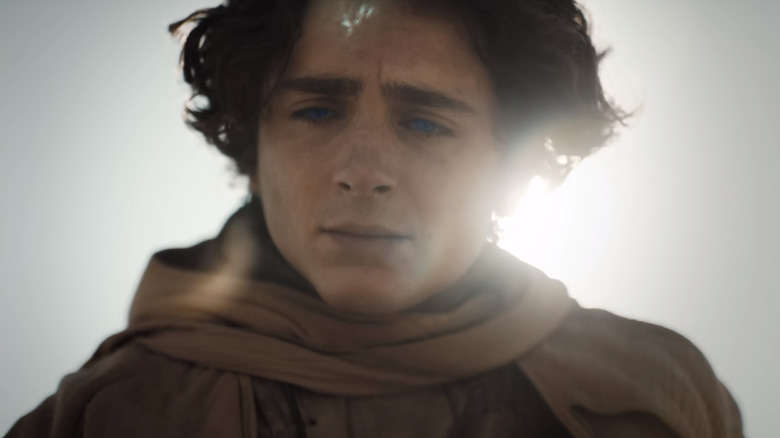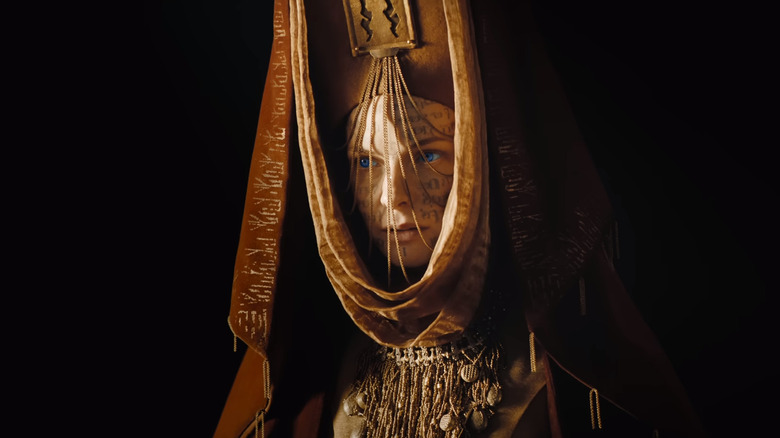Why Dune: Part Two's Director Doesn't Think The First Film Is Required Viewing
From "Across the Spider-Verse" to "Fast X" to "Dead Reckoning," we're living in an era of two-part movies, many of which weren't as initially open about their two-part status as audiences might have preferred. "Dune: Part two," which releases in theaters March 1, 2024, will be the first real test of just how well this strategy pays off in the movie landscape of the 2020s.
The first "Dune" movie was mostly well received, but was criticized by some for feeling incomplete. It felt like watching a version of "Lion King" that ended shortly after Mufasa's murder, even if we know that Paul's journey going forward will be a lot more complicated than Simba's journey to avenge his father. Some among the fandom have chosen to withhold their full opinion on Villeneuve's "Dune" until they see the second movie; if "Part Two" doesn't deliver, the first part's not gonna look so good either.
Director Denis Villeneuve certainly seems aware of this reality, which is why he's taken great efforts to assure us that "Part Two" stands on its own feet, rather than just feeling like the second half of a movie. In fact, not only will "Dune: Part Two," feel like its own proper film, but Villeneuve hopes that it can still be enjoyed without knowing any context beforehand. As he explained in a recent interview with Screen Rant:
"From the screenwriting point of view, I felt that the challenge was to make sure that if someone had not seen 'Part One,' they will still enjoy 'Part Two'; that 'Part Two' will be an autonomous movie. Still, it is the direct continuity of 'Part One,' but to make sure that you can enjoy 'Part Two' without having seen 'Part One.'"
We have some doubts
There are a lot of reasons to be skeptical of this claim, the big one being that the world of "Dune" is so complicated and unique that the first movie spent half its runtime expositing everything we need to know about it. It's difficult to imagine that someone could properly understand exactly how invaluable spice is in this universe, or the specific politics that lead to the Fremen fighting against the Harkonnens and the Emperor. Not only that, but fans of the first film wouldn't even want the movie to retread that information too much. We're looking for a movie that hits the ground running, that builds off the first movie's momentum, and it's not clear how "Part Two" could accomplish this without just assuming that everyone's already familiar with the rules the first movie set up.
On the other hand, there are plenty of signs that "Dune: Part Two" will still feel somewhat self-contained, even if it still confuses newbie viewers a little. The trailers promise the introduction of multiple characters that viewers haven't seen yet, from Florence Pugh's Princess Irulan to Austin Butler's Feyd Rautha. Fans of the book can also attest that the second half of the novel is very much a whole different beast; instead of all the political scheming, the emphasis here is more on trippy metaphysical stuff. Things get weird in the second half of "Dune," in a way that the first half simply does not prepare readers for. "Dune: Part Two" might not be a completely autonomous movie, but it's true that movie-only viewers aren't ready for how crazy things are about to get.

